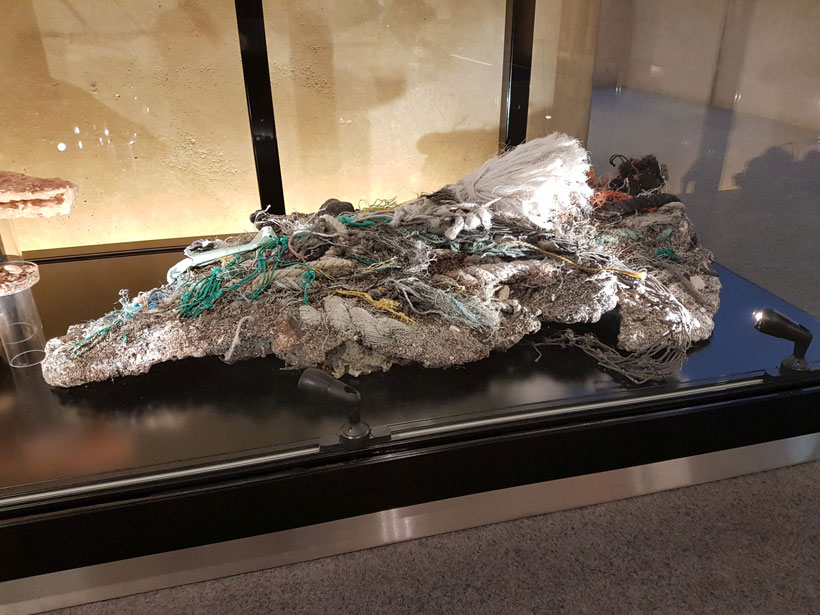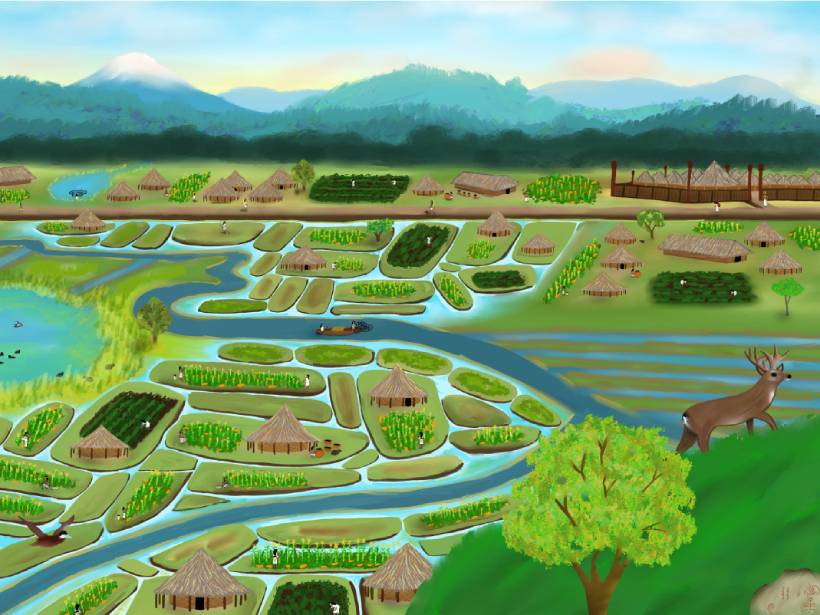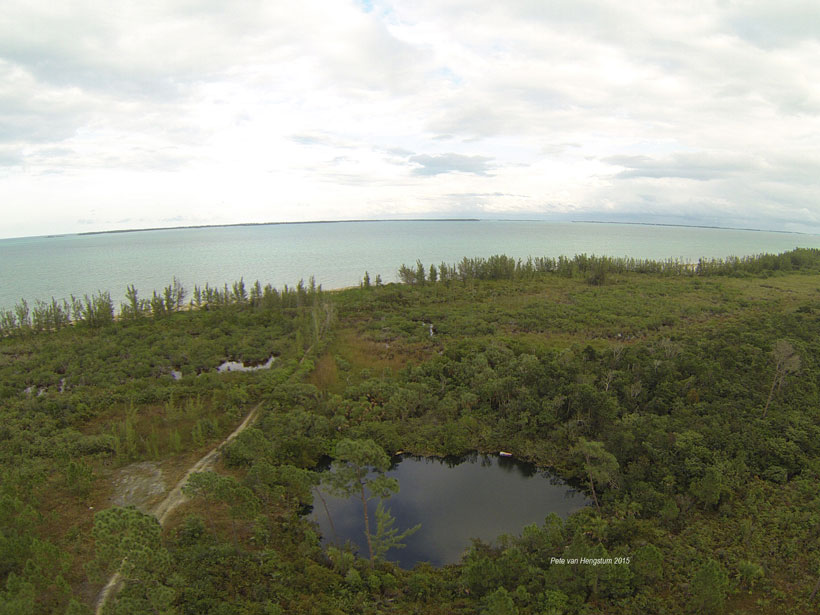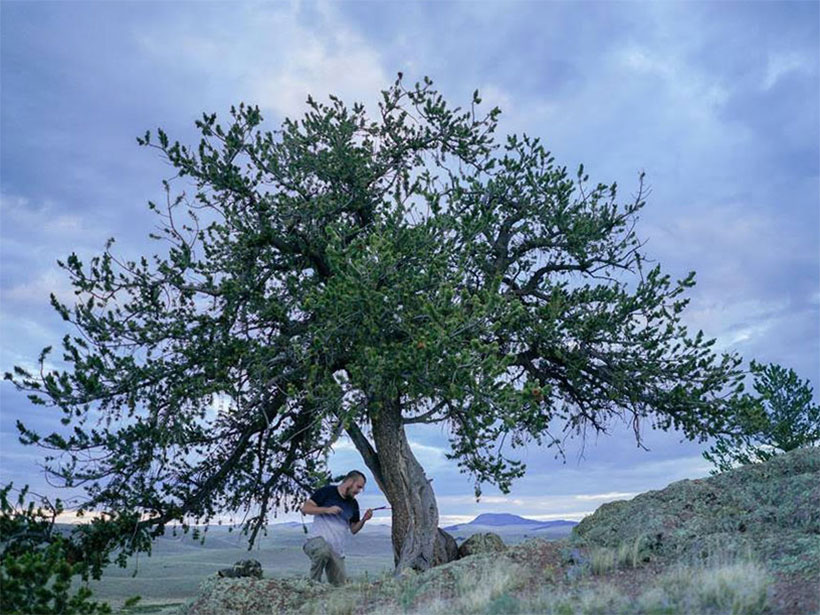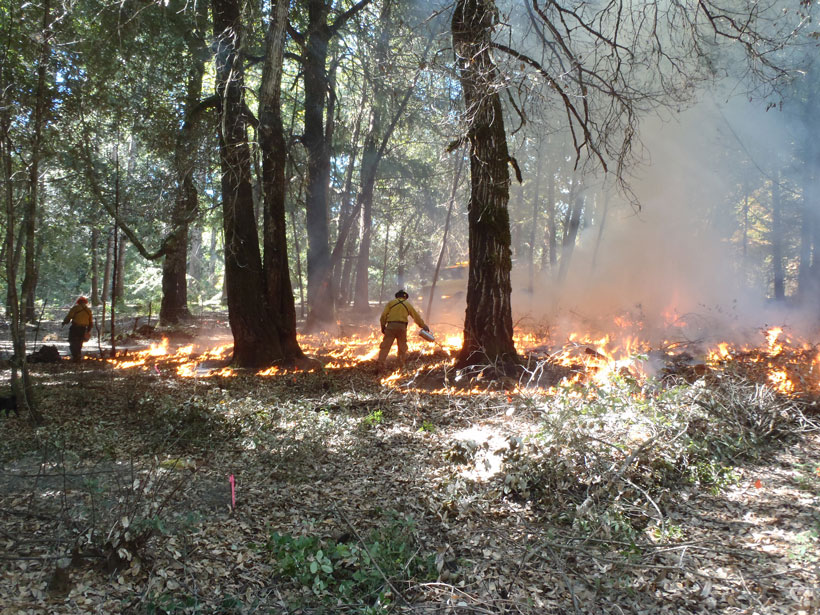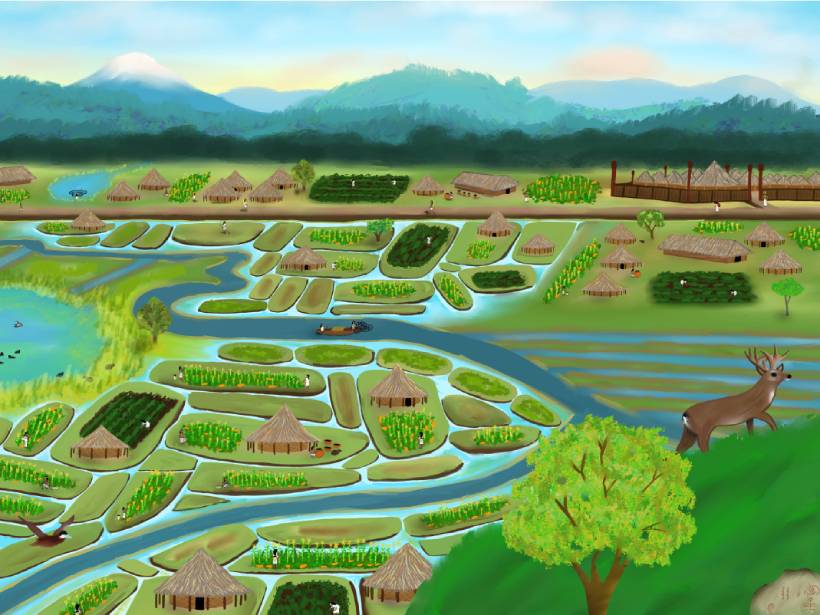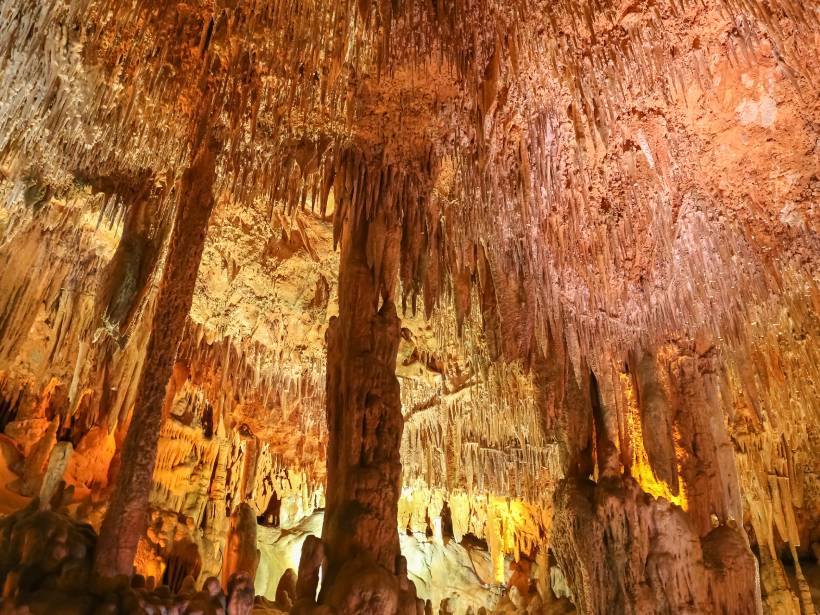Los humanos pueden estar en una nueva época geológica, el Antropoceno, pero diferentes grupos definen su comienzo en diferentes momentos. ¿Cuándo debería haber comenzado el Antropoceno?
archaeology
Holy Water: Miracle Accounts and Proxy Data Tell a Climate Story
In 6th century Italy, saints were said to perform an unusual number of water miracles. Paleoclimatological data from a stalagmite may reveal why.
Ancient Maya Made Widespread Changes to Wetland Landscape
A system of canals 2 millennia old sustained a local population after the collapse of its neighbors, and it continues to affect local ecology today.
Fotografías aéreas revelan un complejo sistema hidráulico Indígena en Bogotá
Los complejos sistemas hidráulicos construidos por los Muisca ayudaron a desarollar los vibrantes humedales urbanos de la capital de Colombia.
Early Inhabitants of the Bahamas Radically Altered the Environment
Clues in sediments show that once humans arrived on Great Abaco Island, they hunted large reptiles to extinction and burned the old hardwoods and palms, leading to new pine- and mangrove-dominated lands.
Podcast: What Tree Rings Can Tell Us About the U.S. Civil War
Climate change–induced drought may have had an influence on the Civil War.
Fire as Medicine: Learning from Native American Fire Stewardship
For centuries, Indigenous peoples have worked to live in harmony with fire. Can integrating such cultural practices into contemporary wildfire management help prevent catastrophic wildfires?
The Difficulty of Defining the Anthropocene
Humans may be in a new geologic epoch—the Anthropocene—but different groups define its start at varied times. When should the Anthropocene have begun?
Aerial Photographs Uncover Bogotá’s Indigenous Hydraulic System
Complex hydraulic systems built by the Muisca people helped define the vibrant urban wetlands of Colombia’s capital city.
Sooty Layers in Stalagmites Record Human Activity in Caves
Scientists analyzing cave formations in Turkey find layers of soot and charcoal in stalagmites, revealing that humans—and their fires—occupied caves thousands of years ago.

